ICC Set Plan to Charge Netanyahu Just After Prosecutor Was Accused of Sexual Assault
The bold step to pursue the Israeli leader for war crimes built support at the international court for prosecutor Karim Khan as allegations of sexual abuse were surfacing.

Two months after the Hamas attack of October 7, pressure was mounting on Karim Khan, the chief prosecutor of the International Criminal Court, as he considered charges against Israeli officials for their conduct of the war in Gaza.
Pro-Palestinian activists who had labelled him a “genocide enabler” and a bloc of ICC member countries in the developing world insisted that action was long overdue, pushing Khan into conflict with Israel’s staunch allies in Washington and other Western capitals.
Khan, a hard-charging British lawyer, was in New York in early December 2023 for the court’s governing body meeting at United Nations headquarters. Stung by the criticism, the 55-year-old prosecutor was increasingly lashing out at his team, according to ICC officials.
One assistant, a woman in her 30s who often travelled with him for her job, asked to meet with Khan to urge him to ease up. He called her that evening to his corner suite high in the Millennium Hilton hotel next to the UN.
There, she said in testimony to UN officials, Khan began to touch her sexually, a pattern of behaviour that she said had been going on for months.
She said she attempted to leave the room several times, but he took her hand and eventually pulled her to the bed. Then he pulled off her pants and forced sexual intercourse, according to the testimony.
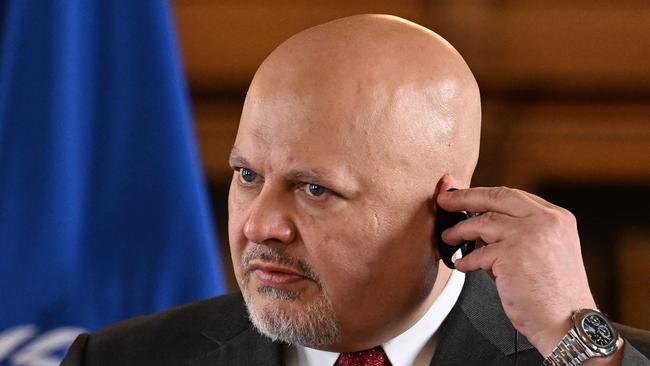
“He always holds on to me and leads me to the bed,” she said in the testimony, which was reviewed by The Wall Street Journal. “It’s the feeling of being trapped.” The incident is one of multiple allegations of coerced sexual intercourse that the woman has made against Khan, according to documents, her testimony and officials familiar with the allegations. The woman, who is married and has a child, alleges Khan performed nonconsensual sex acts with her on missions to New York, Colombia, Congo, Chad and Paris. Khan also did so multiple times at a residence owned by his wife where he stayed in The Hague, the headquarters of the ICC, according to her testimony.
Khan, through his lawyers, said it was “categorically untrue that he has engaged in sexual misconduct of any kind.” The woman, a lawyer from Malaysia, stayed at the job because she didn’t want to leave one of the most important offices in human-rights law and worried she wouldn’t be able to pay the medical bills of her mother, who was dying of cancer, according to her testimony and ICC officials. She also came to fear retaliation from Khan, according to interviews with current and former ICC officials.
The accusations facing Khan have become entwined with the international conflict over Gaza. Just two and a half weeks after Khan learned of the allegations against him last spring, he surprised Israeli and US officials by announcing the most dramatic arrest warrant in the court’s history – for Israeli Prime Minister Benjamin Netanyahu.
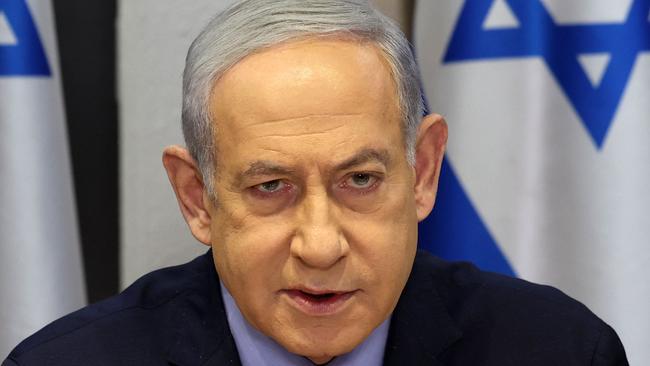
It was the first time in the ICC’s history that the court’s prosecutor sought a warrant for a Western-aligned democratically elected leader, a move the US had been working to avert for months.
The timing of the announcement has spurred questions about whether Khan was aiming to protect himself from the sexual-assault allegations. The day before announcing the warrant application, Khan abruptly cancelled a trip to Israel and Gaza that he had previously said was important to make his decision.
Khan denied that the prosecutor’s decision on the Israeli warrants had any link to the sexual-assault allegations, according to his lawyers.
The warrant shored up support for Khan among anti-Israel ICC nations that would likely back Khan if the allegations ever became public, according to court officials. The warrant also discouraged his accuser for a time from pushing her allegations, officials said, because she strongly supported the investigation of Israeli leaders.
As the abuse allegations were swirling among ICC staff and others, Khan allegedly tried to get his accuser to disavow them by telling her the charges would hurt the Palestinian investigation, according to her testimony.
The casualties of the allegations would include “the justice of the victims that are on the cusp of progress,” he said to her, according to a record of a call that is now part of an independent UN investigation into her allegations. “Think about the Palestinian arrest warrants,” she said he told her on another occasion, according to the testimony.
The UN is also investigating whether Khan attempted to intimidate or retaliate against the woman and other officials who reported his alleged misconduct, according to ICC officials. A report from the UN’s Office of Internal Oversight Services to the ICC’s board is expected in coming months. Any action to remove Khan would require the majority vote of the court’s 125 member nations.
Further complicating the episode is the tenuous authority of the ICC itself. The world’s most powerful and populous nations — including the US, India, Russia and China — aren’t members of the ICC and at times clash with the court. Israel isn’t a member either. The Trump administration sanctioned Khan and the ICC in February for issuing the arrest warrant for Netanyahu.
Khan has alleged that the sexual-abuse allegations are part of a wider effort to undermine the ICC. As the Palestinian investigation heated up, court officials worried that a team from the Mossad, the Israeli spy agency, was operating in The Hague. Russian intelligence agencies were also a concern because of the ICC’s investigation of alleged war crimes committed in Ukraine. In the summer of 2024, the court installed security equipment in the homes of senior prosecutors who were working on those cases.
The severity of the allegations, as the woman conveyed them to U.N. investigators in recent months, hasn’t been previously reported. Nor have the details of how Khan led the ICC into the most controversial move of its 23-year history — seeking a warrant for Netanyahu — with the allegations hanging over him.
Khan was interviewed by U.N. investigators on Thursday and Friday, ICC officials said.
In response to questions from the Journal, Khan said the fact that the ICC judges approved the Israeli warrants underscores that the evidence for them “met the rigorous legal threshold required” by the court’s rules, according to his lawyers. Khan informed US State Department officials in March 2024, before sexual-abuse allegations had been made against him, that he intended to apply for the warrants, his lawyers said. They added that Khan himself requested the outside investigation into the allegations after the ICC closed an internal inquiry.
Khan, through his lawyers, said he was aware of “attempts to discredit him and destroy his personal reputation through the media, as a consequence of his role in the issuing of the arrest warrants.” The ICC declined to comment. The UN didn’t respond to a request for comment. Spokespeople for Netanyahu and the Mossad didn’t respond to requests for comment.
Khan also announced warrant applications against Israeli Defence Minister Yoav Gallant, who has since left office, and three leaders of Hamas. The court issued the warrants against Netanyahu and Gallant, charging them with war crimes and crimes against humanity. The three Hamas leaders have since been killed in fighting or by assassination.
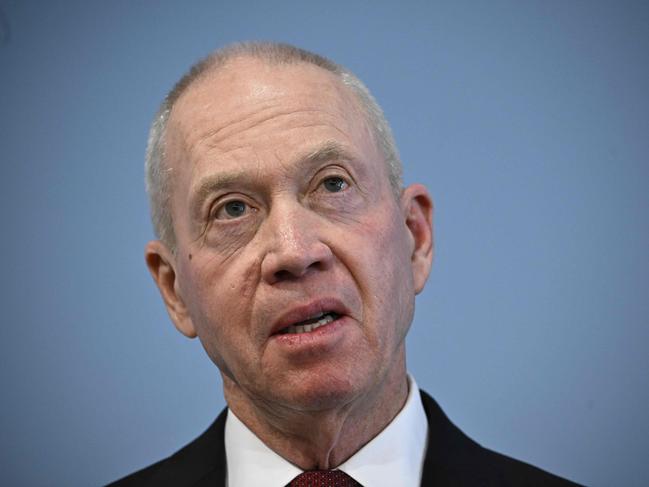
High-stakes decision
The events of the past 18 months have pushed the ICC into crisis, threatening its mission to investigate and try the most serious violations of international law: war crimes, genocide, crimes against humanity and the crime of aggression.
Before the Israel-related warrants, its most high-profile case was the investigation into war crimes allegedly committed by Russian officials, including Vladimir Putin, during the country’s invasion of Ukraine. That brought the court into direct conflict with a global superpower, but helped it build ties with the US during the Biden administration, which supported the move against Russia. Republicans who had long criticised the ICC also backed the court over Ukraine.

The investigation of Israel, however, threatened to destroy the court’s new-found alliance with Washington.
As Khan’s office was considering the warrants in the spring of 2024, he was preparing a high-stakes trip to Israel and the Gaza Strip. He had been trying for months to visit the war-torn Palestinian territory.
Khan tasked Thomas Lynch, an American lawyer who was a close adviser at the ICC, with making arrangements for the trip. The prosecutor was also relying on an unexpected go-between: Alan Dershowitz, the lawyer and Harvard Law School professor who is close to Netanyahu and was arranging a discreet meeting with the Israeli leader.
US officials, including Secretary of State Antony Blinken and National Security Adviser Jake Sullivan, pressed the Israelis to allow him in, because they viewed Khan’s visit as a key opportunity to persuade him that arrest warrants weren’t the right step.
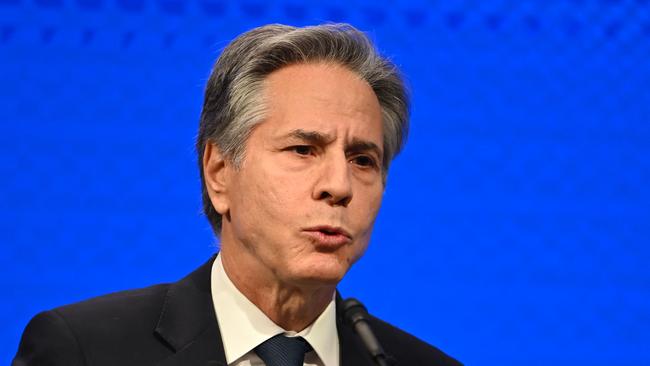
Khan told Blinken that his trip to Israel and Gaza would be an important opportunity to understand the situation on the ground, according to ICC minutes of a May 3, 2024, call reviewed by the Journal. He said he would need time to analyse the information the team gathered before making a decision on the warrants.
Blinken made the case that Israel has an independent judiciary capable of investigating violations of international law committed by the government during the war, without the court’s involvement. The ICC’s 1998 founding treaty in most cases empowers the court to step in only when national authorities are unwilling or unable to carry out justice themselves.
Khan replied that the Israeli justice system has blind spots, in particular on the issue that would become the core of his case against Netanyahu and Gallant: whether Israeli forces were intentionally blocking humanitarian aid deliveries to Gaza as a means of war.
Blinken said the US was pushing Israel to allow in more aid and that warrants could be counter-productive. He also warned Khan that the warrants could up-end delicate hostage negotiations that the US was shepherding between Israel, Hamas and Arab nations.
Blinken declined to comment.
What wasn’t widely known: At the time of the call with Blinken, Khan had just been informed there were allegations of sexual assault against him.
On April 29, Khan’s accuser threw the ICC prosecutor’s office into turmoil when she broke down to Lynch and another colleague in tears, telling them that Khan had been sexually abusing her for a number of months and that she couldn’t take it anymore, according to ICC officials.
Lynch and two other aides confronted Khan at the prosecutor’s home on May 2, telling him they were reporting the allegations to the court’s human resources office. Khan responded that he would have to resign, according to people familiar with the conversation, before adding: “But then people will think I’m running away from Palestine.” The next day, Khan’s office put out a statement saying, “The office insists that all attempts to impede, intimidate, or improperly influence its officials cease immediately.” It didn’t mention the allegations or give detail about the operations it said were afoot, but the idea that the allegations arose from a plot to undermine the court would become part of Khan’s defence when the ICC said it would investigate.
On May 5, the woman was contacted by the ICC’s internal investigation agency about the abuse she had described to Lynch and the other colleague, according to ICC officials. She told investigators she didn’t want to co-operate and refused either to confirm or deny the abuse.
The woman, a Muslim who strongly supported the investigation of Netanyahu, Gallant and Hamas, later told colleagues and friends that she didn’t want to disrupt the arrest warrants by bringing a complaint against Khan.
On May 19, Khan suddenly told aides he was cancelling his long-sought trip to Israel and Gaza, which was set for the week of May 27. Lynch was supposed to travel to Israel the next day to prepare the visit. Instead, on May 20, Khan announced the warrant applications.
Making the move public was unusual and defied the advice of senior prosecutors, who wanted to avoid heaping public pressure on the judges who would ultimately decide whether to approve the warrants, current and former ICC officials said.
Khan, through his lawyers, said “no offer has yet been received from Israel that would permit” access to Gaza that would allow engagement with all parties, citing restrictions imposed by Israel. At the time the warrant applications were announced, the ICC had already closed the internal inquiry into the sexual-abuse allegations, showing that any linkage between the two is unfounded, according to the lawyers. They added that Khan’s decision to make a public statement on the warrant application wasn’t unusual, was supported by a majority of those involved and that senior prosecutors appeared with him at the time of the announcement.
Trump sanction
Officials in Israel and the US, and some inside the ICC, were stunned by the announcement.
The Israeli warrants drew outrage from President Joe Biden and later President Trump, who sanctioned Khan for his role in an executive order soon after taking office. Trump signalled other court staff members who work on the investigation could be targeted with actions such as asset seizures or suspension of entry into the US.
Andrew Cayley, a British prosecutor who was leading the investigation of alleged crimes committed by Hamas and Israel, resigned this March because he has family in the US, after Khan refused to move him to a different investigation, ICC officials said.
The warrants also fuelled doubts about the court’s authority. The court doesn’t have its own enforcement body and instead depends on members to detain those accused of crimes. But even countries including France and Germany that have long been among the institution’s biggest supporters said they might not comply with an ICC request to arrest Netanyahu.
Last month, Netanyahu visited Hungary, but the EU country declined to enforce the warrant against him. Instead, Hungary said it would withdraw from the ICC.
The decision to go after Netanyahu has sparked a fierce debate inside and outside the ICC about whether Khan has jeopardised the court, given Israel’s clout in Washington, the country’s support in Europe and the slim chance that Netanyahu would ever be arrested.
Khan’s critics said he could have found another way to deal with the alleged crimes by Netanyahu, including by using the diplomatic leverage of the court to put pressure on Israel’s government.
“I would have preferred a different approach,” said Stephen Rapp, who was the US ambassador-at-large for war crimes in the Obama administration. “The prosecutor is both a prosecutor and a diplomat, and to a large extent, the diplomatic role is the more important one.” Khan denied that his decision to seek the warrants has endangered the ICC and said the warrants were founded on the evidentiary record and fulfilled the court’s commitment to impartial justice, according to his lawyers.
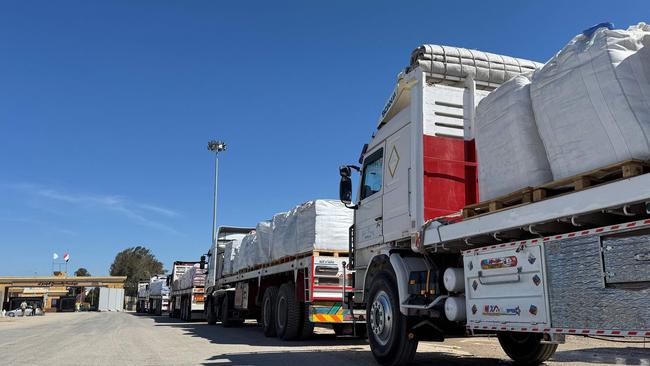
Some legal experts said the case against Netanyahu and Gallant is strong. In the days after Oct. 7, Gallant said Israel would impose a “complete siege” on Gaza, adding: “There will be no electricity, no food, no fuel.” Gallant’s statement “was very clear,” said Luis Moreno Ocampo, the ICC’s first chief prosecutor. “And that is exactly what is prohibited.” Netanyahu, after a meeting with Biden on Oct. 18, said, “We will not allow humanitarian assistance in the form of food aid and medicines from our territory to the Gaza Strip.” The statements are important pieces of evidence in the cases against both men, according to people familiar with the cases and ICC documents. The evidence hasn’t been made public. ICC prosecutors contend that the statements show that the slowdown of aid into Gaza wasn’t merely a side effect of Israel’s military campaign against Hamas but a tactic employed intentionally by the Israeli government to win the war.
Israel and its defenders said Israel was facilitating aid into Gaza but that the conflict slowed those deliveries and that Hamas was diverting some from reaching the civilian population. Gallant’s statement, they said, was made in the heat of the moment days after Oct. 7 and not implemented.
Gallant declined to comment.
Since early March this year, Israel has blocked all humanitarian aid from entering Gaza, a siege that many legal experts say violates international law. Israel says the blockade is needed to prevent Hamas from benefiting from aid deliveries.
After the woman accusing Khan declined to participate in the ICC’s internal investigation, the matter dropped from view for a number of months. But in October 2024, an anonymous X account began posting details about the allegations. After several news organisations published stories, the ICC board announced it would commission an external review of the allegations facing Khan. The ICC, which isn’t part of the U.N. but works closely with it, tasked the U.N.’s oversight office with conducting the probe.
Some diplomats and court officials gave weight to Khan’s insistence that he and the ICC were facing external threats that were attempting to destroy the institution.
But in the months that followed, discontent inside the institution mounted. Senior prosecutors and staff asked Khan to go on leave until the investigation is completed, but he refused. Some ICC officials said they fear his presence at the court is discouraging potential witnesses from co-operating with the investigation.
The anger boiled over on a February conference call with Päivi Kaukoranta, president of the court’s governing body, that was convened to discuss the allegations. Staff on the call, including Khan’s accuser, denounced Khan’s refusal to take leave. The moral legitimacy of the institution is being eroded day-by-day, said one ICC official on the call. Many of the staff came from human-rights backgrounds and grew up in conflict zones, the official said, and didn’t want to kowtow to a male authority figure.
A knock at 3am
Khan, an observant Muslim, was born in Edinburgh to immigrants from Pakistan. He rose to the upper echelons of British law, representing suspects and victims before the ICC and international tribunals in Cambodia, Sierra Leone and elsewhere. He built a reputation for being hard-charging and impulsive, able to charm and bully in the same conversation.
In 2020, Khan threw his name into the ring for chief prosecutor of the ICC with the backing of a powerful former client: Kenyan President William Ruto. Khan had defended Ruto when the ICC charged him with crimes against humanity for allegedly fomenting election violence in 2007-08 that left more than a thousand dead. ICC judges declared a mistrial against Ruto in 2016 because more than a dozen witnesses recanted their testimony.
A slim majority of the ICC’s member nations backed Khan, and he took office in June 2021.
Among Khan’s early actions was to address workplace problems at the court. He sought to fire 10 men in the prosecutor’s office for behaviour ranging from verbal abuse to carrying on inappropriate relationships with subordinates, current and former officials said.
The woman accusing Khan of sexual abuse had worked at the court for six years before joining his team in 2023. She said his advances began soon after, on a work trip to London in March 2023, where he tried to hold her hand, according to her testimony to U.N. investigators.
She alleges he had nonconsensual sexual intercourse with her during a trip to Kinshasa at the beginning of June 2023, according to her testimony.
Back in The Hague, Khan would begin sexually touching her when she delivered documents to his home. As the assaults continued, according to her testimony, she told Khan that she was having suicidal thoughts. He expressed concern and left her alone for several weeks, but then he began assaulting her again. She said Khan never used a condom.
Toward the end of April 2024, Khan and the woman travelled to Venezuela and Colombia. He met Venezuelan strongman Nicolás Maduro and announced measures that would allow the Venezuelan authorities to investigate human rights abuses rather than have the ICC bring charges.
In Caracas, Khan knocked on the woman’s hotel room door at 3am. She pretended to be asleep. The next day, they were in Bogotá, Colombia, when Khan asked her to come to his hotel room. She told him she wasn’t feeling well, but Khan came to her room instead. He lay down next to her on the bed and placed his hands in her underwear, penetrating her digitally. “I did not move an inch,” she later told investigators.
The woman told Lynch and her colleague about the alleged abuse once she returned to The Hague.
After she told ICC internal investigators she didn’t want to participate in an investigation, a close confidant sent her a text message, reviewed by the Journal: “Do you want him to be held accountable? Or just for it to stop and get another job?” “The latter,” she replied.
Khan approached her several times in the office crying, according to text messages she sent to a friend and her testimony to the U.N. “He said in tears: ‘Tell me if I need to resign … Think about the Palestinian arrest warrants,’” according to her testimony.
In the following months, Khan and one of his advisers at the ICC, Mamadou Racine Ly, repeatedly asked her for a statement disavowing the allegations, according to her testimony.
“Then he will be comfortable that it’s finally finished,” Ly told her in a meeting in September, according to a record of the conversation.
Ly didn’t respond to requests for comment.
On a phone call in October, Khan warned her of the repercussions of pursuing an investigation. “The casualties will unfortunately be three: You and your family, me and my family and the justice of the victims,” Khan told the woman, according to a record of the call.
Lynch, meanwhile, alleges that Khan retaliated against him by moving him out of Khan’s office, the premier office at the court, officials said.
In the days after Lynch reported the allegations, Khan’s wife, Shyamala Alagendra, a lawyer who doesn’t work for the ICC, asked to meet with Lynch. She told him that she heard a rumour Lynch was having an “inappropriate relationship” with a colleague, according to a statement he gave to the ICC’s internal investigators. Lynch replied that it wasn’t true.
“At this point, I began to view her comments to me as threatening and became very uncomfortable,” according to Lynch’s statement.
Alagendra categorically denied making any statement to Lynch “that could reasonably be construed as threatening,” according to Khan’s lawyers.
Rumours were swirling about the allegations over the summer, and an anonymous person had been emailing journalists about the allegations. The email contained phone numbers of the woman and Lynch, next to the Hebrew word for telephones.
By around August, the female staffer was becoming increasingly distressed by the constant pressure to say that nothing happened, ICC officials said. She reached out to members of the governing board of the ICC to discuss her allegations.
“I held on for as long as I could because I didn’t want to f — up the Palestinian arrest warrants,” according to her testimony.
The court’s governing body hasn’t asked Khan to step aside while the probe is ongoing. He continues to meet with officials and diplomats in The Hague and to travel the world.
“People have told me to stand up against this man,” the woman said on the February conference call with the board president, “yet everyone, including elected officials, seems to be very scared of him and says there is nothing we can do [about making him step aside] because he refuses.”
The Wall Street Journal
